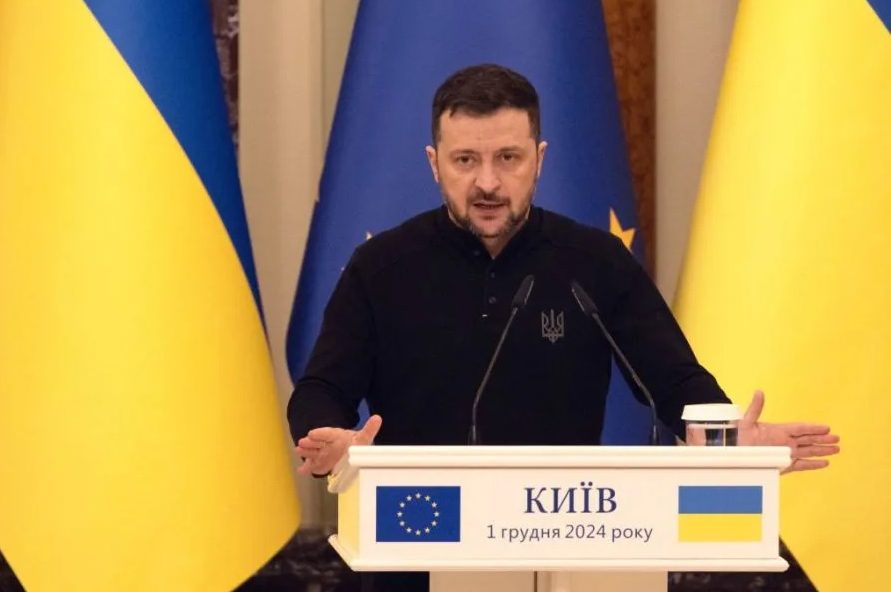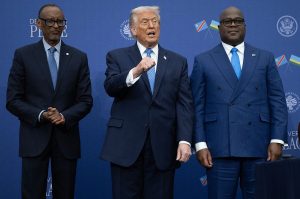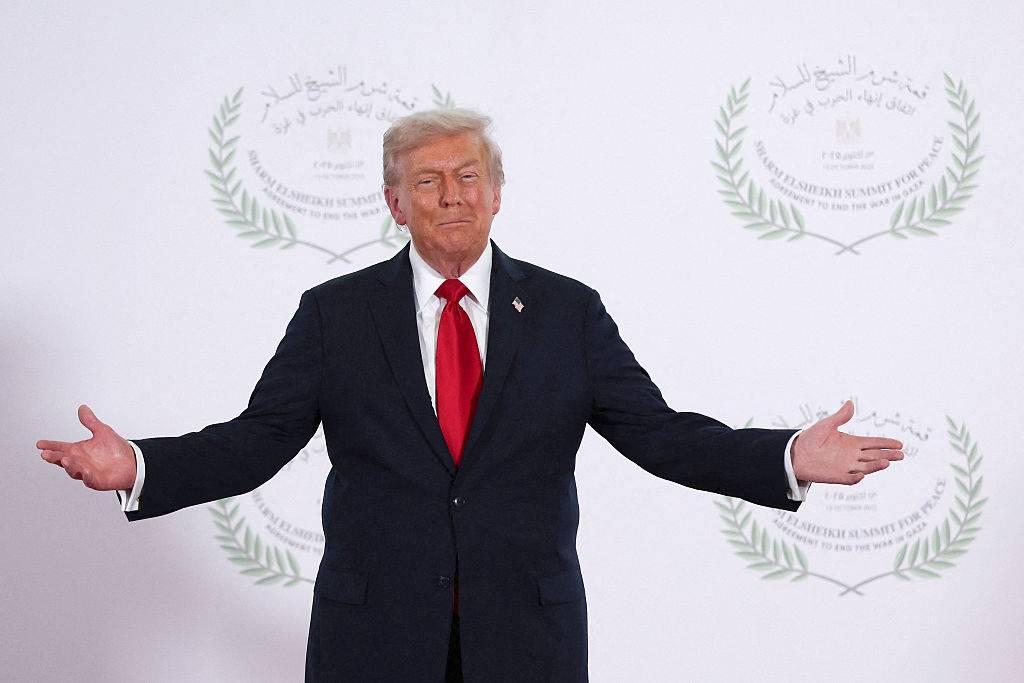On the eastern marches of Europe, after nearly three years of slugging it out with its larger, more powerful neighbor for control of a string of unlovely mining towns, Ukraine is approaching exhaustion. Kyiv, which has led a fierce and unexpectedly successful defense of its realm, is contending with a waning supply of weapons, ammunition and money. Worse still, President Volodymyr Zelensky’s war effort is beginning to run out of fighting men.
All men aged twenty-five and over — with the exception of those deemed critical to the war effort, or who have fled, gone into hiding or bribed their way out of the draft — have been dispatched east to hold the line. Those who volunteered during the first days of the war and are still able-bodied are manning positions years after they believed they would be rotated out. These are now some of the most battle-hardened soldiers in the world and Ukraine cannot afford to let them go home.
The scene, then, is set. Moscow and Kyiv are both on a countdown to exhaustion
Since the heady days of late summer 2022, when a lightning counter-offensive seized back a large pocket of territory near Ukraine’s second city of Kharkiv, Kyiv’s prospects have steadily dimmed. The chances that it can now recapture the Donbas, not to mention Crimea, seem remote.
Zelensky has admitted as much and suggested he would sign a peace deal that would put the ultimate fate of those regions off for another day. In effect he would probably be signing them away.
And yet, even as Kyiv has scaled back its war aims and Moscow’s forces are advancing steadily across the 600-mile frontline, Putin’s war machine is also creaking. Russian’s economy is in peril. Overall inflation is rising and the costs of staple goods are rising quicker still. Bread has gone up 12 percent in the last year, cabbage by 26 percent and potatoes by 74 percent.
To try and keep a grip on rising costs, the central bank’s competent but increasingly unpopular governor Elvira Nabiullina has set interest rates at 21 percent. But with 40 percent of Russian federal spending going into the war she is running out of economic levers.
And then there is the supply of military equipment. More than 80 percent of the tanks and armored vehicles Moscow is sending into battle are from old Soviet stock. Those reserves are predicted to slowly run out in late 2025.
The stalwart Soviet soldier who fought his way to the Reichstag was underfed, under-appreciated, and underpaid. But now Moscow is having to cough up huge signing-up bonuses to persuade reluctant Russians to join the army. Those muscular salaries are further pushing up inflation. And the recruitment of around 30,000 men a month into the military is denying the rest of Russian industry badly-needed manpower. The number of corporate bankruptcies in Russia is sharply up.
There are also the questions of Putin’s leadership. For a quarter of a century, many ordinary Russians have been willing to give their blessing to the former KGB man because he was seen as broadly competent. But that patina has gone from his stewardship. Ukraine’s successful incursion into Kursk, the collapse of the Assad regime in Syria, setbacks in Africa, not to mention the appallingly slow and costly advance in Ukraine, have all led to a growing sense that the old man might be losing his touch.
It would, of course, be foolish to put money on Putin’s imminent demise. But sometime soon, probably in the second half of the new year, his problems will begin to compound. At that point defenestration becomes a possibility. If Ukraine can hold out until then, doubtless with the help of western money, ammunition and armor, it is yet conceivable that it could, if not exactly win the war, then at least force Russia into negotiations from a position of strength.
So, as we head into 2025, two clocks are ticking down, one in Kyiv and one in Moscow. And at this critical juncture enters Donald Trump.
Trump has said he will cut military aid to Ukraine. He will also attempt to persuade Moscow to bank the advances it has made on the battlefield and accept a ceasefire. What happens next really depends on what you believe to be Vladimir Putin’s wider intent.
If you think, at the of seventy-two, he will be happy with control of the 20 percent of Ukraine his forces have seized, then he may order his men home and call a belated victory parade. But if you believe that his real aim is to control the whole of Ukraine — whether overtly or through proxies — then any ceasefire will only be the curtain at the end of act one.
As soon as Putin sees fit, he will resume campaigning, whether with tanks and guns or political blackmail, assassination and spycraft. Either way Ukraine will remain under Russia’s sway.
On the Republican side of the aisle in the US, and, more quietly, in a few European capitals, some politicians are asking: so what? The answer to that question lies in whether you think that giving an aggressive dog red meat will quieten it or simply encourage it to come back for more. After four years living in Moscow and two decades of Russia-watching I find it hard to imagine an aging Putin spending his last years overseeing a period of peace and healing.
In the very short term, as Trump prepares to move back into the White House, western policy-makers are focussing on two major issues. Firstly, is the West prepared to give a rump Ukraine meaningful security guarantees? And, if so, what would they look like? And secondly, if Washington pulls its funding, something it has widely telegraphed, is Europe prepared to bankroll and arm Ukraine (probably with weapons bought from the US) until such a time that the mill that is Moscow’s war machine runs out of grist?
The scene, then, is set. Moscow and Kyiv are both on a countdown to exhaustion. Kyiv wants to guarantee its future as an independent state. Moscow wants to ensure that it becomes no such thing.
Trump’s aims? Definitely a ceasefire, probably a signing ceremony in Washington, just possibly a Nobel Peace Prize for the man who ended the war? How he sets out to achieve those aims, however, and the price he is willing to pay to bring Moscow onboard, could determine not only the fate of Ukraine in the short term, but security in Europe for decades to come. The next few months are critical.

























